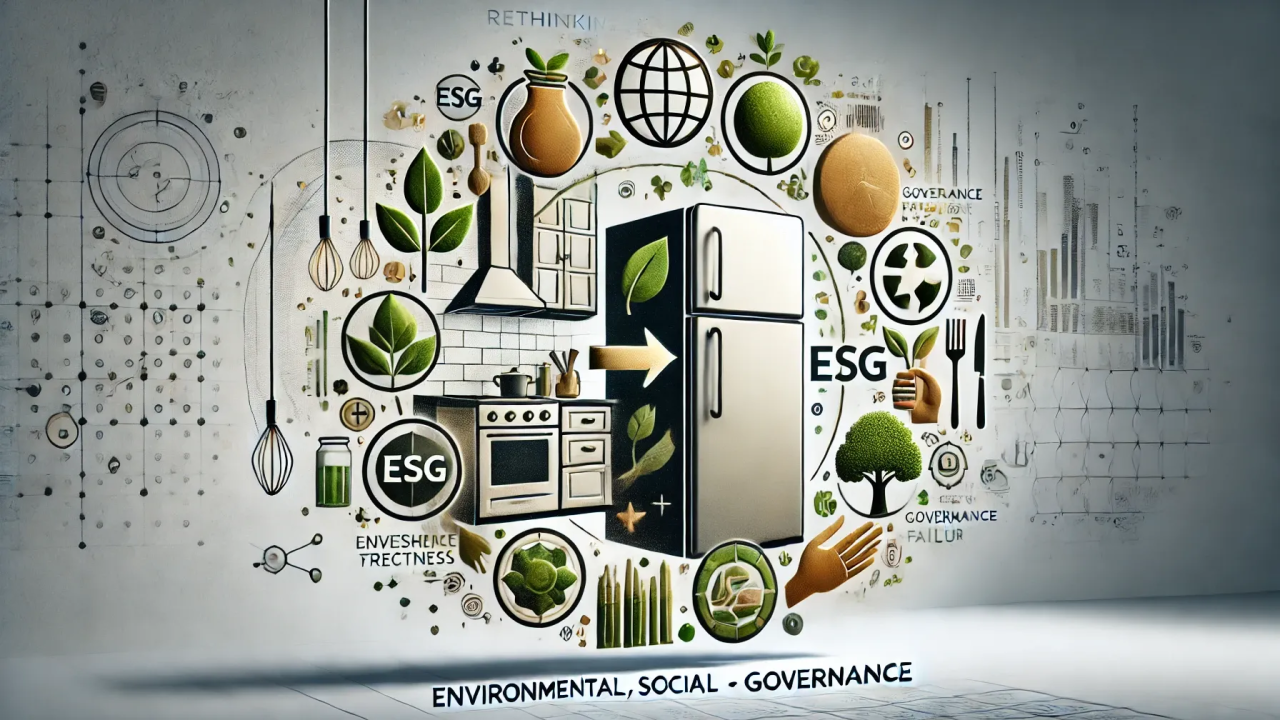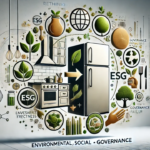Introduction: In many cultures, cooking more food than necessary stems from a desire to ensure everyone is well-fed. 🍲 While rooted in good intentions, this practice requires re-evaluation when viewed through modern ESG (Environmental, Social, Governance) principles.
While many may think household practices are not a relevant example, as the saying goes, all good and bad things start from home. 🏡 The home is where culture is set—if we establish a culture of sustainability and responsibility at home, it becomes much easier to carry these values into the workplace. 💼 This newsletter explores how shifting from these traditional practices to more mindful approaches can drive sustainability and social responsibility in everyday life. 🌱
1. The Traditional Practice: Good Intentions, Unintended Consequences 🤔 Historically, cooking excess food has been seen as a symbol of hospitality and abundance. 🏡 However, this well-meaning tradition often results in unintended consequences. While leftovers may be given to cattle or household helpers, these actions are reactive rather than proactive and do not align with the forward-thinking approach needed in today’s ESG-focused world. Additionally, relying on modern-day refrigeration as a fallback often leads to diminished freshness and a governance failure in ensuring the efficient use of resources. ❄️
2. Environmental Impact: Designing for Waste ♻️ Consistently preparing more food than necessary leads to the overconsumption of resources such as energy, water, and ingredients. 💧 While refrigeration is often used to extend the life of leftovers, it can contribute to food spoilage when those leftovers aren’t consumed in time, exacerbating waste. The environmental impact of this waste, including the energy used for refrigeration, highlights the challenges of managing leftovers in a way that truly benefits the environment. 🌍
3. Social Responsibility: Inclusiveness as an Afterthought 🤝 Current practices often reflect a mindset where the needs of others, such as household helpers or animals, are considered only after everyone else has been served. 🍽️ Relying on refrigeration to preserve leftovers can also mean that those receiving the food are given less fresh, lower-quality meals. To align with ESG principles, there must be a shift towards inclusiveness by design—planning meals with all stakeholders in mind, ensuring that even marginalized groups are treated as equal beneficiaries. 🌟
4. Governance: The Need for Policy and Mindset Shifts 🏛️ At the household level, there is often a lack of structured policies or guidelines to prevent waste and promote inclusivity. 📜 Using refrigeration as a fallback instead of mindful meal planning reflects a governance gap where waste reduction and quality assurance are not prioritized. A governance approach should be adopted, focusing on conscious meal planning that minimizes waste, reduces reliance on refrigeration, and ensures equitable food distribution. This shift in mindset is crucial for aligning everyday practices with ESG goals. 🔄
5. Proactive Practices Aligned with ESG Principles 🚀 Adopting efficient meal planning strategies is key to reducing waste and promoting sustainability. 🌱 Techniques such as portion control, mindful cooking, and creatively using leftovers can significantly decrease resource consumption and reduce reliance on refrigeration. Participating in community food-sharing programs or planned donations can integrate ESG principles into household practices, contributing to broader social and environmental goals. 🌍
Summary: Traditional practices, though well-intentioned, must evolve to meet the demands of a more sustainable and socially responsible world. 🌍 By moving from a mindset of planned excess and refrigeration as a fallback to proactive efficiency and inclusivity, individuals can better align their actions with ESG principles, fostering a more sustainable and equitable way of living. 🌟
#ESG #Sustainability #SocialResponsibility #Governance #EnvironmentalImpact #SustainableLiving #ResourceEfficiency #InclusivePractices #MindfulLiving #CommunityEngagement #RefrigerationImpact







